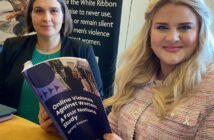Today (18 August) is A-level results day, bringing with it a wave of emotions across the UK and the beginning of the university clearing process.
The Open University’s (OU) mission of being open to all perhaps never feels more applicable than when students across the UK receive their A-Level results.
The OU continues to provide a positive, alternative route to gaining a degree for many young people which is open to all and doesn’t require a certain set of results.
This year, the National Student Survey (NSS) announced that the OU ranked in the top 6 across all four nations for student satisfaction, coming 1st in Scotland and Northern Ireland and with an overall satisfaction rating of 86% across the UK.
Although the past couple of years have presented challenging circumstances, the OU has maintained its mission, to be ‘open to people, places, methods and ideas’. We have taught over 2 million students worldwide, the majority of which are in full time employment, offering a unique and flexible approach to learning and support.
Despite strong performances from other institutions, the OU exceeded all Russell Group members in its results.
Studying for a degree with the OU can work out less expensive too; the full-time equivalent tuition fees at the OU in England are £6,456, compared to the typical £9,250. The OU also has a significant amount of support to help disadvantaged students achieve success.
Many students work whilst learning, to allow them to progress their careers at the same time as gaining new skills, proving a cost-effective way to study.
Professor Tim Blackman, Vice-Chancellor, said:
“The Open University’s mission is to be open to everyone and results day is a prime example of this – we can provide opportunity, excellence and flexibility regardless of your A-Level results.
“Thanks to the alternative route the OU offers, more students study with us than with any other university in the UK, receiving high-quality teaching and support that you can fit around your life and responsibilities.”
How our students study
You can step up the career ladder at the same time. Students can study at home or at work, on the move or on the beach – reading, watching and listening, doing activities and assignments, taking part in debates and discussions. Our course materials are available in a variety of different ways such as via video, podcast and interactive apps.
Support from tutors
Throughout their study, OU students get regular support from a dedicated tutor and Student Support Team. In addition to this, there is a vibrant online community of OU students, meaning that though students are learning online they are able to get together with other students online, at group tutorials and through informal study groups.
Flexible ways into study
There are a number of ways you can start your studies with The Open University:
Undergraduate degrees: a wide range of subject areas available either full time or part time
Access courses: designed to develop your study skills and give you a taster of the OU’s method of learning
Credit transfer: where previous study counts towards an OU qualification
Massive Open Online Courses: which you can now use, in some cases, as credit towards a qualification
Degree Apprenticeships: We offer Higher Apprenticeships and Degree Apprenticeships across the UK delivered by blended learning, to allow greater flexibility for employers and apprentices.
OpenLearn: our free online learning platform, has courses and materials you can use for free, including Badged Open Courses
Validated courses: study a course, validated for quality by the OU, at a partner institution
Explore the full range of options on the OU website.
Registration is open for courses starting in autumn 2022. Closing date: 8 September 2022



